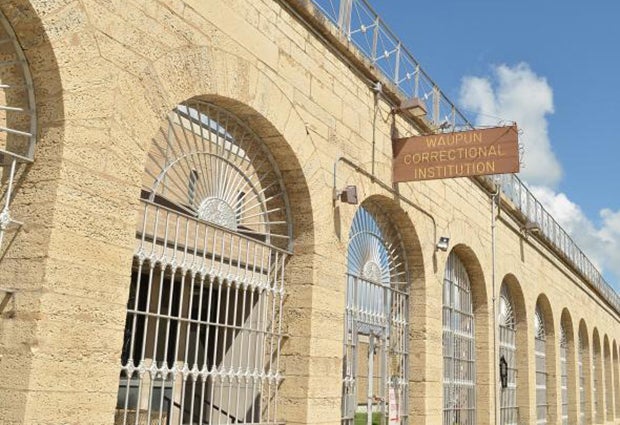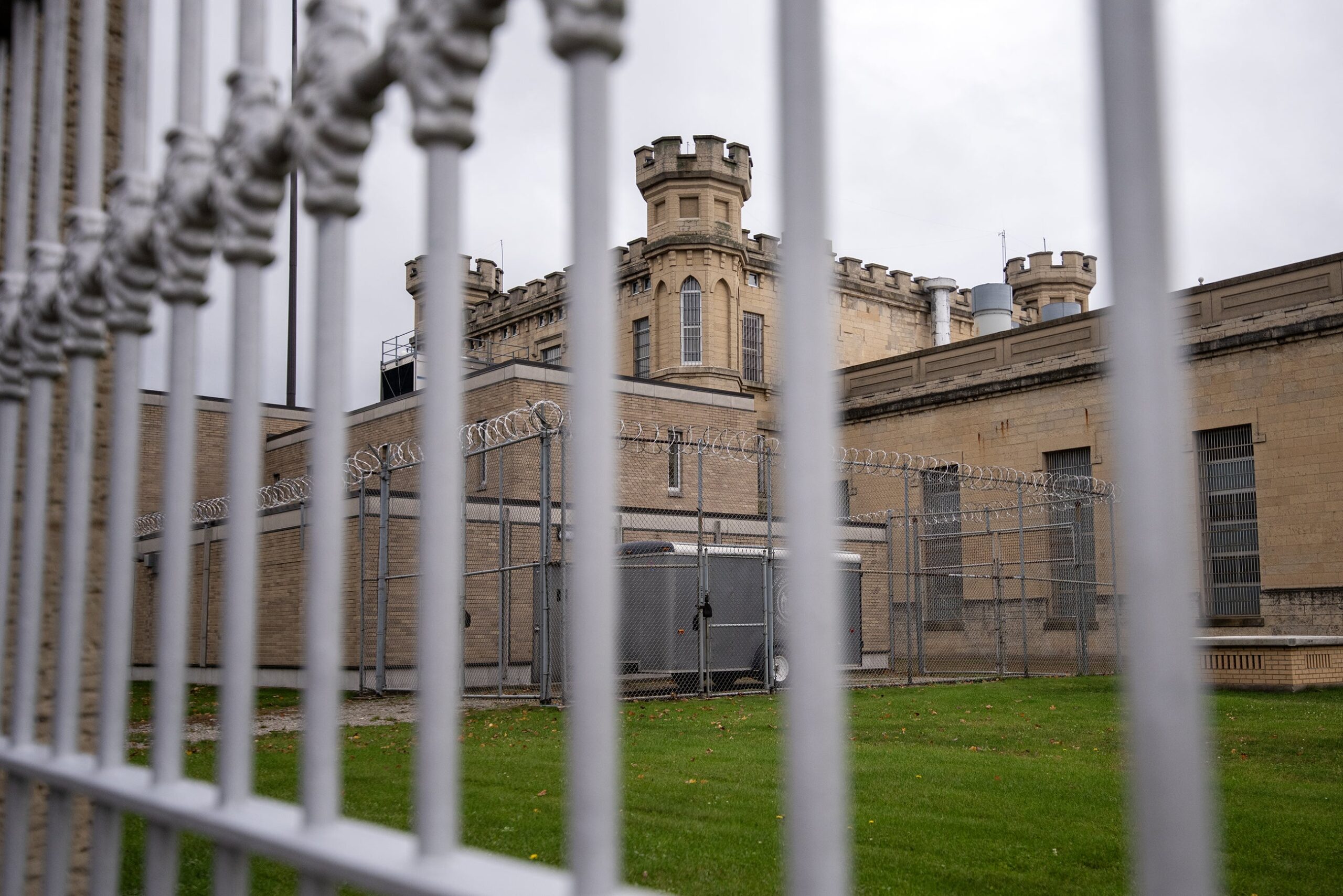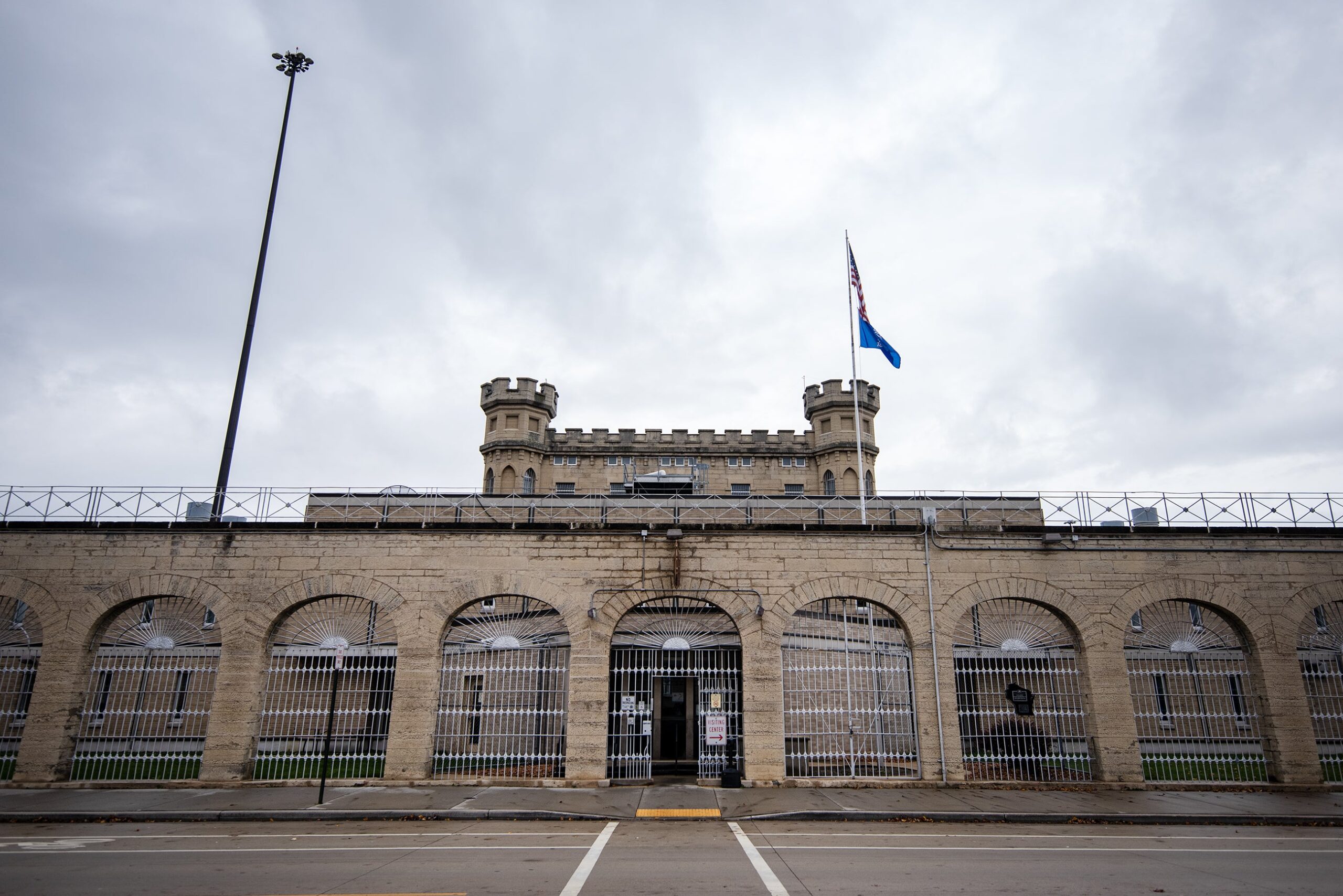A doctor at Wisconsin’s Waupun Correctional Institution has contracted the new coronavirus. The maximum security prison houses more than 1,200 inmates.
In a statement Tuesday night, a Department of Corrections spokesperson did not confirm the site or staff member involved, citing federal law and privacy protections. The DOC said all staff potentially exposed were notified upon confirmation that a staff member tested positive for the virus.
In an email to staff, Warden Brian Foster told employees that the institution and Department of Corrections are taking the situation seriously and implementing significant cleaning measures.
Stay informed on the latest news
Sign up for WPR’s email newsletter.
“(A)ll adults in custody that were directly exposed were quarantined,” said the DOC in a statement. “Any staff members that report symptoms will be directed to quarantine for 14 days.”
News of the infection comes as several groups are demanding Gov. Tony Evers release inmates who are at risk of getting the new coronavirus from jails and prisons across Wisconsin.
The American Civil Liberties Union of Wisconsin and other advocacy groups have sent letters to Evers and criminal justice system officials this week.
The infection shows that prisons in the state are not equipped to handle the outbreak, according to Peggy West, lead legislative organizer for Ex-Incarcerated Prisoners Organizing (EXPO) in Wisconsin. She said her husband is currently incarcerated at one of Wisconsin’s correctional facilities.
“They have no plan for quarantine in place and that’s a huge part of this recuperation from this disease,” she said. “We need to make sure that we’re doing everything we can to keep families together during this pandemic.”
The DOC has limited visits to facilities to prevent the spread of the disease. West said family members are not being provided with updates on the status of their loved ones.
Corrections Secretary Kevin Carr told WPR’s “The Morning Show” on Monday that DOC has been preparing for the pandemic and enhanced cleaning of facilities to prevent the spread of the virus. Carr said leaders are working daily to coordinate with the governor and other agencies on infection monitoring and response.
“As soon as an individual starts to exhibit symptoms of COVID-19, that person will be isolated and then monitored for their symptoms and a medical determination would be made as to whether the condition of the individual warrants external treatment and testing,” said Carr on Monday.
If the individual is incarcerated, Carr said officials would isolate that person from other people in the same unit to reduce the risk of spreading the disease. He added they’ve also been ramping up facilities’ ability to provide visits by video or phone, noting DOC’s telephone provider has offered to increase free phone calls for those in custody.
The advocacy groups are asking the governor to release those being held on crimeless supervision violations and expedite release for those coming up for parole or nearing the end of their sentences. The goal, the groups say, is to reduce inmate populations as COVID-19 continues to spread.
David Liners, state director of grassroots group WISDOM, said during a call to action Wednesday that it’s only a matter of time before the new coronavirus spreads into the state’s prison population since corrections staff live in communities where the disease is spreading.
“Most people have a place to go,” said Liners. “Those who do not have a place to go, though — the DOC and the state agencies need to find them a safe place to stay because they can’t just release people out on the street.”
The ACLU said state data shows nearly 1 in 5 people behind bars were 50 or older at Wisconsin’s prisons as of late 2016. Liners said the prisons are overcrowded, making it more likely for disease to spread.
Other demands include ensuring adequate resources and practices to disinfect facilities, as well as enable video check-ins with families while suspending in-person check-ins for probation and parole.
Sharyl McFarland is a lead organizer with SOPHIA, a coalition of faith communities in Waukesha.
“Most people like myself who have loved ones and friends in Wisconsin jails and prisons have a tremendous amount of anxiety concerning the COVID-19 virus,” McFarland said. “This dangerous coronavirus threatens us with sickness and death, especially those who are incarcerated in Wisconsin prisons.”
For more than five years, Brenda Baird has driven from her home in Oneida to visit her son at the Black River Falls Correction Center. She usually goes on a Wednesday, that’s the day the prisoners can use their own money to buy food and cook in the prison’s “restaurant” and cook for their guests.
It’s something Baird and her son look forward to. When news of the new coronavirus began, Baird started writing letters to her son, wondering if she could still visit. It wasn’t until the day before she planned to visit she heard she couldn’t go.
Baird is almost 70. She hates the thought of not seeing her son for several months, but knows it is the right thing to do.
“I said, ‘You know what, you are probably in one of the safest places you can be right now,’” Baird said. “If you get coronavirus, one of the staff people brought it in.”
Concerns From Staff
Correctional officers and their family members have expressed concerns through WPR’s WHYsconsin project that officers aren’t being properly protected.
“We are committed to the health and safety of our staff and those in our care, and will continue to take the steps needed to honor that commitment,” said the DOC in a statement.
A long-time correctional officer at the Green Bay Correctional Institution said every year, she gets influenza several times from working in such close proximity to hundreds of inmates.
Her husband also works in the prison system.
The officer, who did not want to give her name out of fear of retaliation, said she has reached out several times to the governor’s office, the Department of Health Services and the DOC asking what the administration’s plans are for a COVID-19 outbreak in the prison system.
“You can’t plan for an outbreak of COVID-19 in a prison as if it was like a nursing home or assisted living because there are more variables than just visitors,” the officer wrote in a letter to Evers. “They have inmate transfer from institution to institution, Monday (through) Friday trips to (University of Wisconsin)-Madison for inmate doctor/surgical appointments, semi drivers bringing in supplies, County Sheriff’s picking up (and) dropping off inmates due in court, laundry that GBCI does for other institutions, emergency trips to local hospitals and the list goes on (and) on.”
The Evers administration has responded to the corrections officer, each time directing her to the DHS website for information on COVID-19.
The DOC’s Carr said they have a multidisciplinary work group that meets daily to formulate strategies and discuss updates with other state agencies.
He added that the DOC has also been addressing plans to reduce crimeless revocations. But, he said ongoing efforts to reduce the prison population long-term with the governor will take time and require the cooperation of Wisconsin lawmakers.
WISDOM’s Liners has been disappointed with that response from officials within the Evers administration.
“The governor has the power to do this, especially in this time of emergency,” he said.
Editor’s note: This story was updated at 9:35 p.m. Thursday, March 19, 2020, with remarks from the Department of Corrections.
Wisconsin Public Radio, © Copyright 2024, Board of Regents of the University of Wisconsin System and Wisconsin Educational Communications Board.






